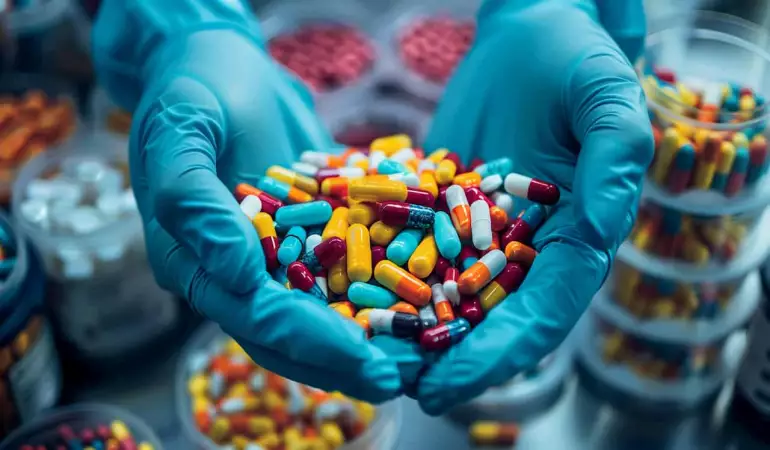Shocking side effects of Parkinson's drug revealed
Parkinson's drug alters gut microbiome A new study has found that entacapone, a drug used to treat Parkinson's disease, can disrupt the gut microbiome, causing iron deficiency.
February 18, 2025 05:47
This creates favorable conditions for certain bacteria, such as E. coli , to multiply, which can lead to digestive disorders and other health problems.
The study found that not only antibiotics, but also many other drugs, especially those used to treat neurological disorders, can negatively affect the balance of gut bacteria. Although these drugs are designed to affect specific organs, they can have unexpected effects on the gut.
Until now, most studies have relied on patient data or have been conducted with single bacteria.
A recent study revealed that the effects of drugs on the microbiome are more complex than previously thought.
How does Parkinson's drug affect gut bacteria?
Scientists used a new method to study how the Parkinson's treatment entacapone and the drug loxapine affect gut bacteria.
Stool samples from healthy people were mixed with these drugs and changes in the bacteria were observed.
It turned out that entacapone is particularly effective in suppressing many "good" bacteria and allowing E. coli bacteria to multiply rapidly.
Further studies revealed that entacapone causes iron deficiency in the intestine.
E. coli bacteria have an efficient iron absorption system, so in cases of iron deficiency they begin to predominate, and the balance of the microbiome is disrupted.
This discovery helps to better understand how some drugs can unexpectedly affect the composition of gut bacteria and cause health problems.
Drug effects on the microbiome may be more common than thought
Scientists are finding that entacapone-induced iron deficiency may not be an isolated case.
Other drugs have similar metal-binding chemical groups, and it is believed that this mechanism of action may be common to a wider range of drugs.
The study also reveals the possibility of reducing the side effects of entacapone.
Supplementing iron in the colon could protect the microbiome from dysbiosis and reduce digestive disorders that often afflict Parkinson's disease patients.
Study author Michael Wagner said his team is now looking at ways to tailor drug therapy in a way that is as minimally damaging to the gut microbiome as possible.
They are currently considering the possibility of selectively delivering iron to the large intestine - this would help maintain a healthy microbiome, but would not interfere with the absorption of drugs in the small intestine.




